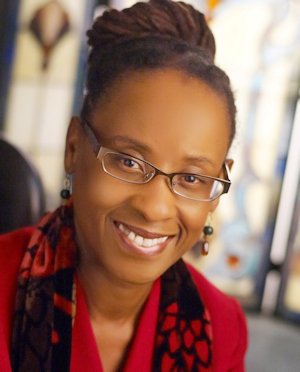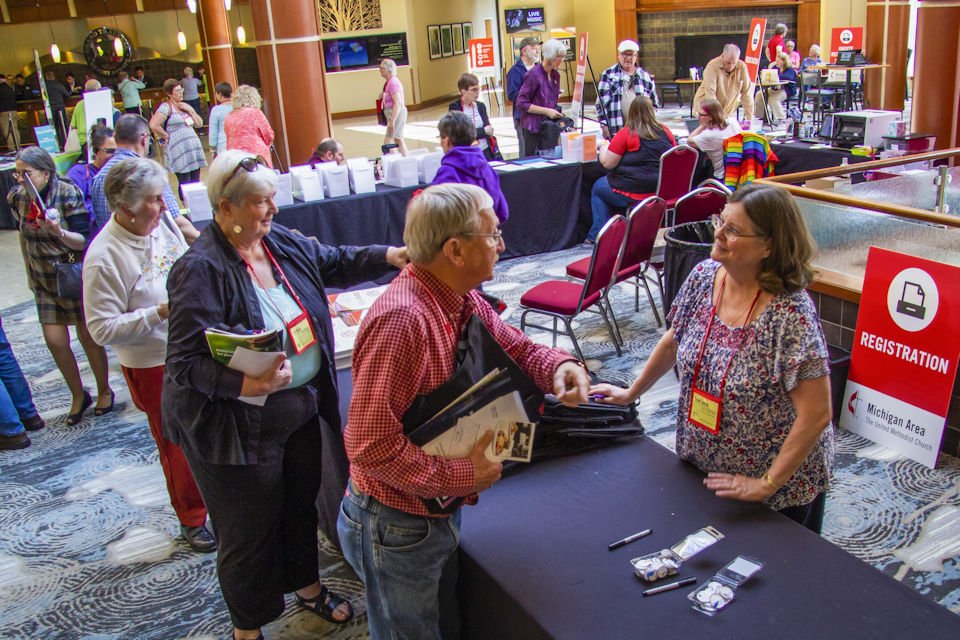Rev. Kennetha Bigham-Tsai chairs the UMC’s Connectional Table. She shares about rich connections she experienced at her home Annual Conference.
KENNETHA BIGHAM-TSAI
umc.org

Attending my own annual conference is always like coming home. I meet and greet clergy who have been with me on the journey in ministry since my journey began. There was my clergy friend who was on my first District Committee on Ministry when I was coming through the process. There was my first district superintendent, and my second, and my third. There were the clergy friend and her family who accompanied mine to family camp. There was the friend that I have leaned on for years for counsel and support.
It was the same with the laity. Invariably, at every annual conference, I encounter, eat with, reminisce with, pray with lay people who were at the churches or in the district I served. On one of the days, I attended with my now 20-year-old son and ran into laypeople who were at our first church. They remembered him as a babe in the nursery or as a child in a Sunday School class.
Annual conference is family. And so, it was with trepidation that I attended this year, fearing that my family would be torn apart. Every time I encountered a former clergy friend or layperson who I had grown to love, I wondered, would we hurt each other in our ideological debates? Even worse, would this be the last time that we gather as this body, as this family before we divide?
This annual conference, like so many others around the world, is being shaped by the impact of the 2019 Special Session of the General Conference and our impasse over how to be in ministry with our LGBTQIA siblings. In Michigan, there was open acknowledgement of the possibility that we would not be able to go forth together, and there was open grief.
But there was also a healthy measure of grace, of hope, and of love. At one point during floor debate, a delegate stood and began to use words that are harmful to LGBTQIA persons. Another delegate stood and called an end to the debate, noting that the conversation was doing harm though he knew the person did not intend to. This was an act of maturity and grace that valued people and the health of the body above an outcome.
There were moments of hope as well. In Michigan, we elected one of the youngest General and Jurisdictional Conference delegations we have in our history as far as I know—four young adults and half of the delegation younger than 45. We elected a delegation that is half women and a quarter people of color. Many were first-time delegates. That happened because some long-term delegates chose not to run to allow fresh voices a chance at the table.
Other glimpses of hope came from young women, two of them daughters of clergy, who are out in the world transforming it and blazing trails to new ways of being the church. One, Becca Farnum, talked about shaping values through environmental justice and sustainability work in the Middle East. I remember her from the days of my service at a local church connected to a Wesley Foundation. Then there was Kristen Grauer, who talked about ways in which growing up as a pastor’s kid brought her into ministry in the foreign service. She soon will be the top U.S. diplomat in France. Her father Chuck Grauer, now deceased, served three of the churches on my former district. And a young laywoman who I have known for years, Laura Witkowski, brought a powerful message about courage to our annual conference as one of its preachers.
These are the places that I found hope. And there were many glimpses of love as well. There was deep love in the commitment of the people working hard for a church that includes and celebrates all people no matter ethnicity, class, gender, gender identity, or sexual orientation or any other kinds of distinctions. There was deep love in the commitment to do no harm—a commitment that stretched across ideologies. There was deep love in our ability to be on opposite ends of the spectrum ideologically, but still, see in each other the very image of God. And there was love in our just being there, worshipping together, grieving together, eating and playing together as a family.
I do not know what will happen to our United Methodist Church. I do not know what we will become. But I am convinced that what we can become became real at my own annual conference. Our becoming can be full of grace, hope, and love. May it be so in all of our annual conferences around the world.
Christ’s blessings for upcoming annual conference sessions and for those which have already taken place. May the outcomes of our deliberations glorify God and bring hope to the church.
Last Updated on November 1, 2023

